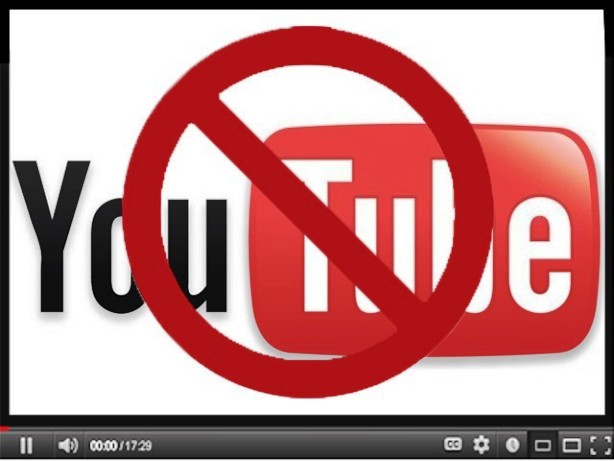Index relies entirely on the support of donors and readers to do its work.
Help us keep amplifying censored voices today.

Who would’ve thought the news earlier this month of YouTube being finally made accessible in Pakistan, albeit as a local search engine, would open a floodgate of criticism?
Minster of State for Information Technology and Telecommunications, Anusha Rehman certainly did not. She probably thought she had done a good turn — wooed many young digital rights activists who had long been demanding unblocking of the website and calmed others who had demanded blocking of objectionable content from it.
“Instead of installing costly filtration mechanisms, Google will easily be able to block blasphemous content on the request of the Pakistan government,” Rehman told the Senate’s Standing Committee on Information and Technology. “Saudi Arabia and Malaysia have also reached a similar arrangement with Google,” she added.
But Farieha Aziz, director at Bolo Bhi, a not-for-profit geared towards advocacy, policy and research in the areas of gender rights, government transparency, internet access, digital security and privacy, dismissed the news out right saying: “There is no arrangement between the company and the government, unlike the perception the government is projecting.”
“I don’t want a localised version. Remember what became of Disney in India with everything getting dubbed in Hindi! I would definitely prefer the original version,” said a resolute 12-year old Khadeja Ebrahim, a YouTube buff. “I love YouTube, my entire school loves YouTube and we hate the people who have blocked it,” she added vehemently.
Yasser Latif Hamdani, who had filed a case for unblocking the website, on behalf of digital rights campaigners Bytes For All is not too happy with the news. His concern is mainly constitutional.
“It is a matter of principle. I do not think it is alright that the government can decide what I should be able to view,” he said. To him this was a clear violation of Article 19, 19-A and 17 of the Constitution of Pakistan. “Therefore, I do not consider it a great service,” he concluded.
The young lawyer uses the popular video-sharing website to listen to debates on law, politics, constitution, philosophy and history. He accesses YouTube through virtual private networks(VPNs), but complains “the experience is just not the same”.
Nighat Dad, of the Digital Rights Foundation doesn’t find the move “encouraging” either and given “how different vague provisions of different laws and constitution have been misused in blocking the content on internet” in the Pakistan” is, in fact, quite wary. She warns: “I see a huge wave of internet blocking and censorship coming our way.”
“If it happens, it will be bad news!” pointed out Shahzad Ahmad, country director of B4A.
Simply put, said Ahmad, it means legalising censorship of digital content on this platform. “YouTube may then become like Facebook. You will only be able to see that content which authorities will allow us to see,” he explained.
Presenting a doomsday-like scenario, he further said: “A new war will erupt among religious factions and the stronger ones may demand a ban on the others. Human rights movement will suffer hugely, political expression will become much more difficult and alternate discourse will die.”
Many say this will put a stop to hate speech, a major issue stoking religious sects and minorities, in Pakistan, especially on social media.
Ahmad disagreed. “Banning hate speech will not end till perpetrators and banned outfits are taken to task. If you expect that banning their Facebook/Youtube or Twitter will solve the problem, then the answer is a no, a big no!” he said emphatically.
The blocking of YouTube in Pakistan, began last year on 17 September after the website refused to remove the blasphemous 14-minute video clip “Innocence of Muslim”.
The video had led to violent protests and demonstrations across the Muslim world, killing over 50 people.
Ahmad said the decision to block YouTube had nothing to do with upholding religious values or blocking blasphemous content. He suspects it had “political” underpinnings to it.
“The authorities have used this incident to strengthen censorship and filtering in Pakistan, and spent millions of dollars, a useless wastage of the public’s hard earned tax money, as nothing can be blocked on the Internet. Citizens have already resorted to VPNs and circumvention tools.
That is true. Over the past one year, hundreds of die-hard users of this website have relied on proxy servers to work around the ban.
“I just came back from China- and while Facebook and YouTube were banned everywhere, you can access them in Shanghai Freezone especially the Pudong district of Shanghai,” said Hamdani. “So even authoritarian regimes understand the futility of such censorship,” he added.
These proxy servers are passed on word of mouth and go viral within moments, but expire every few weeks. Then the process of passing the information starts all over again. “You can imagine our desperation,” pointed out Ebrahim.
But while she and her school friends are mostly using the website for downloading songs or cheat videos for games, there are hundreds who depended on it for their bread and butter.
“I can give you scores of examples of small traders, who marketed and “networked” for expanding their businesses on this free platform because they could not afford to advertise through the mainstream media. The Virtual University, an online learning institute, had uploaded thousands of lectures for its students to access; all that came to a halt. These lectures benefitted not just Pakistani students but millions of those living abroad. Now they have set up their own servers, and which I suspect must have been a huge investment” said Dad.
Toffee TV.com produces songs, stories and activities for children in the Urdu language. They went live on July 2011 and banked on YouTube to take it further and the latter did. It met with enormous success at schools, in homes and even among speech therapists, but saw a huge slump in its business. Before the ban was imposed, TOFFEE was uploading two new video programmes per week with 100,000 new visitors a month and serving five times those many repeat visitors.
The minister for IT said that the Pakistan Telecommunication Authority has been tasked with drafting an ordinance that would provide intermediary liability protection to Google/YouTube, thereby not holding the company responsible for what users choose to upload to the platform.
Bolo Bhi is quite disturbed by this news. “Why is PTA, a regulatory authority that deals with enforcement and not policy making, being asked to draft the ordinance?” it asked in a press statement. It also asked what became of the expensive filtering equipment that the government had acquired for its telecommunication networks.
A Kuwaiti man has been sentenced to five years in prison for a Twitter comment reportedly insulting the prophet Muhammad.
Musab Shamsah was arrested by local police in May for posting on his Twitter account that Hassan and Hussein, the sons of Muhammad’s cousin, Ali, were more honest than Muhammad himself. He received a sentence of one-year imprisonment for mocking religion under article 11 of the penal code, and an extra four years for violating the 2012 National Unity Law for publishing content that could be deemed offensive to religious “sects” or groups.
Shamsah pleaded not guilty to all charges during his hearing on 18 November at the Kuwaiti Court of First Instance, arguing that his tweet had been misinterpreted by prosecutors. The tweet was deleted 10 minutes after it was published, with Shamsah following it up with two clarifying messages.
Human Rights Watch has condemned the sentence imposed on Shamsah, imploring that Kuwaiti prosecutors should stop detaining people for their peaceful expression of religious, political, or other views.
“It’s an insult to all Kuwaitis for the government to give itself the authority to decide what’s insulting to religion, and to jail Kuwaitis for it,” said Sarah Leah Whitson, Middle East director at Human Rights Watch. “Let each Kuwaiti decide what he or she finds insulting, and as simple as clicking ‘unfollow,’ decide whether they want to see or hear a message.”
Shamsah’s lawyer will file for an appeal on 20 November.
Eerlier this week as an Emirati activist was handed down a two-year jail sentence for tweeting.
This article was originally posted on 21 Nov 2013 at indexoncensorship.org
 Saudi journalist and blogger Hamza Kashgari, detained for 625 days on blasphemy charges, has been released.
Saudi journalist and blogger Hamza Kashgari, detained for 625 days on blasphemy charges, has been released.
The news was confirmed by Saudi human rights activist Walid Abulkheir, who told AFP: “The authorities freed Kashgari at 6.30 am (0330 GMT)”
This morning, Kashgari himself tweeted: “Mornings of hope…souls that live and never die. Thanks to God.”
The 23-year-old writer was arrested in 2011 when he tweeted a mock conversation between himself and the prophet Mohammed which sparked furious responses, including death threats.
He tried to flee Saudi Arabia, but was detained in Malaysia and deported following a request by Interpol on behalf of Saudi authorities.
Blasphemy is punishable by death in Saudi Arabia.
Asianet-Pakistan / Shutterstock.com
This article was originally published at Dawn.com
Dear Parliamentarians,
I write to you in the hope of assisting you in a rather arduous task being assigned to you by the Pakistan Telecommunication Authority (PTA). If recent reports are to be believed, the Pakistan telecommunication authority has done the unthinkable; in a rare moment of clarity the PTA has requested the parliament to define ‘blasphemy’.
Yes, after the country’s governor was shot 27 times for seeking pardon for a blasphemy accused mother, his murderer garlanded by lawyers and defended by the ex-Chief Justice of the Lahore High Court, a 14-year-old young girl and her family driven out of the country, a 70-year-old mentally unstable woman sentenced to 14 years in jails, several hundred burnt houses and dozens of lynched dead bodies later, you’ve finally been approached to determine what exactly classifies as blasphemy.
If you ask me, it’s rather strange that none of the incidents – or call them random acts of insanity – I summarised were able to do what a B-grade filmmaker was able to achieve. But then again, priorities! We are a nation of strange people and reactions; we forgive the unforgivable and punish ourselves for the crimes of others.
Without wasting much time, I’d want to discuss the important issue at hand. Now that you’ve been given the responsibility of defining blasphemy for the nation, given how difficult it is to be specific, and government policies are by their nature vague, I’d say go with enlisting instances of blasphemy for clarity’s sake:
For the biggest form of blasphemy that we all almost always commit is to force another to live in fear for believing, speaking, thinking and sometimes even existing, as we justify it in the name of our faith or stand silent as we bear witness.
No videos, sketches or hate speeches have hurt Islam more than the reckless army of blood thirsty goons justifying vandalism in the name of religion.
There doesn’t exist a form of disrespect bigger than justifying cold-blooded murder and hate in God’s name. To instill fear and lawlessness in the society and to justify that as an act of faith. End the insanity now, tell the nation that we aren’t all potential blasphemers waiting to be lynched as and when the opportunity arises.
Trust me; it might do a lot more than just unblocking YouTube.
Yours,
A fellow potential blasphemer